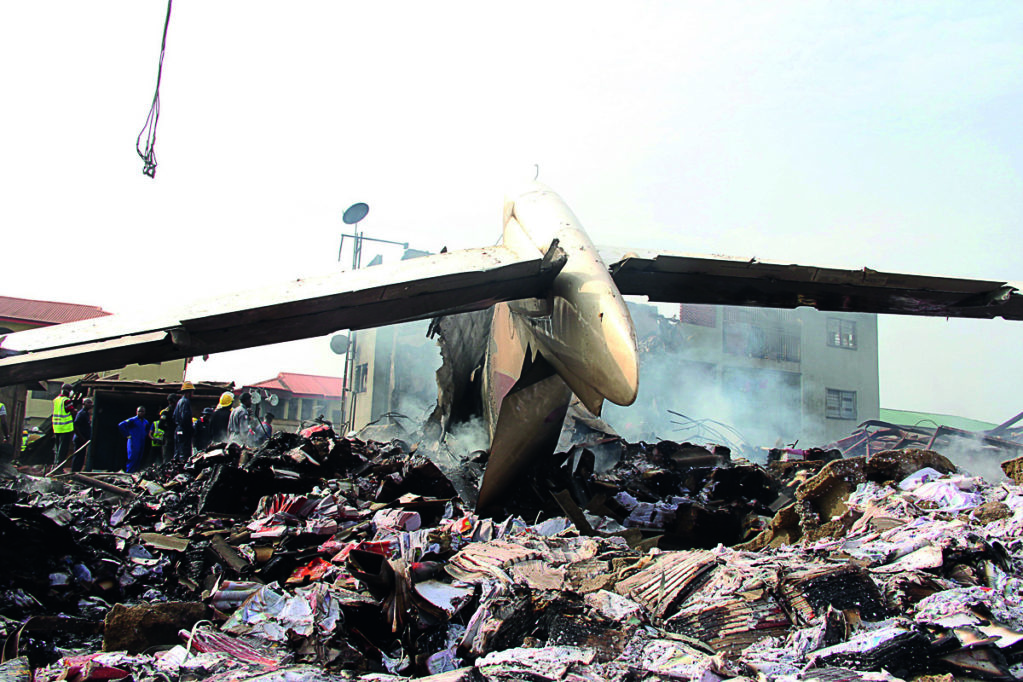Christopher Okocha, or Chris, as he was referred to, was one of the passengers on the ill-fated airline that carried 146 passengers and a crew of seven from the Nnamdi Azikiwe airport in Abuja, Nigeria’s capital, to the Murtala Muhammed Airport in the commercial hub of Lagos. He was one of the many Nigerians who constitute the nucleus of the country, who through their daily motions, are pivotal to the overall development of this giant of Africa. A young and visionary man, he had been married for about two years to the love of his life, during which time he became a father to his daughter. Chris’ life is a sad example of the misfortune that befell several families, as many like his small child lost fathers, while others like his young wife have become widows. The devastating crash wiped out whole families who were on board the airline, while children were left orphaned. The families of the victims have all experienced an irreparable loss; they are left bereaved and despondent, left alone with memories of their kin that do little to soothe the pain.
In the hours after the crash, a pervasive cloud of gloom hung over the country that had been weary from similar incidents that occurred in the past. Nigeria is no stranger to airline crashes. Its unenviable record of 10 air crashes in the last 20 years means that it has had an average of one fatal crash in every other year since 1992. A particularly disastrous spell in the 12 months between October 2005 and October 2006, saw three commercial airlines—each carrying a substantial number of passengers—meet a similar fate. After six years of relative safety, Nigerians bore a palpable sense of relief and cautious optimism at the changing fortune of the country with regard to airplane crashes. Many believe these incidents had become a thing of the past, but the crash of Dana Air flight 0092 represents a calamitous setback, which due to the scale, is a visible scar that has blighted the consciousness of the nation. Among the passengers on the flight was the group general manager of public affairs for the Nigerian National Petroleum Corporation (NNPC), Levi Ajuonuma, a respected journalist who was chief spokesman of the state owned oil corporation for nine years. Likewise, Ehime Aikhomu, the son of a former vice president who held office under the military in the 90s, also lost his life in the incident.
The airline involved, Dana Air, is a subsidiary of Dana Group of companies, which is owned by the Hathiramani family. The family has lived in Nigeria for over four decades, they control a number of subsidiaries that play in the automobile, consumer goods, pharmaceutical and aviation industries. The airline has been operational since 2008, with a fleet of five planes that fly across various regions of the country. The aircraft involved in the crash was a McDonnell Douglas MD-83 which was commissioned in 1990, when it was bought by its previous owners, American Alaska Airlines. The plane was reported to have had a history of incidents including a wiring incident that caused smoke to fill the cabin in 2002, while it was being used by Alaska Airlines. Dana Airlines is reported to have bought the plane in 2008.
As a result of this airplane crash, Nigeria’s aviation authorities are now faced with the enormous task of restoring the shattered confidence of the public in the aviation sector. This is despite comments by both local and international regulatory agencies in the aftermath of the crash that significant improvements have been made in the country’s aviation sector in terms of adherence to safety procedures and international standards. In 2006, the industry regulators issued a recapitalization order to airline operators. This led to a significant reduction in the number of carriers with only eight able to meet the new requirements. Since then, the carriers had operated remarkably well, with no major incidents recorded. But notwithstanding, some experts had indicated that airline maintenance and overall safety practises in the industry were not what they should be. On the evidence of the recent crash, it appears that they have been proven right. Dana is now liable to pay compensation worth over $15 million to families of the crash victims, in line with global practices and rates for airline passenger insurance. It is reported that about 70% of the insurance risk was retained with foreign-based insurance companies; therefore the local companies will avoid taking a massive hit from the claims. Thus, for both the aviation authorities and the airlines, the long and arduous task of addressing the challenges in the sector has just begun.
